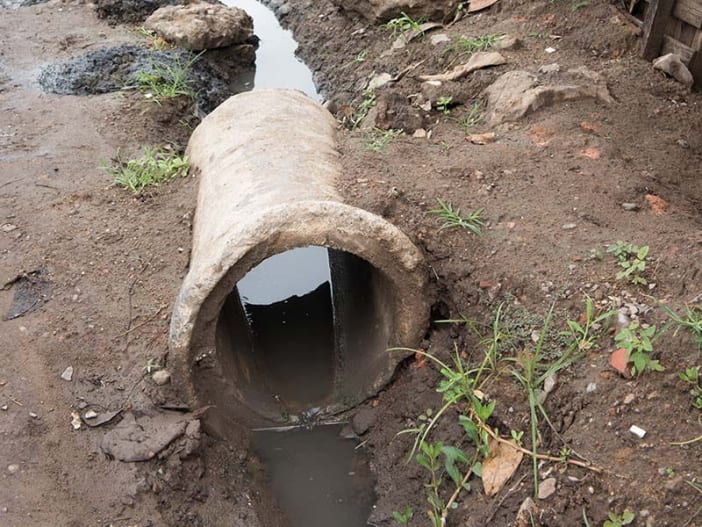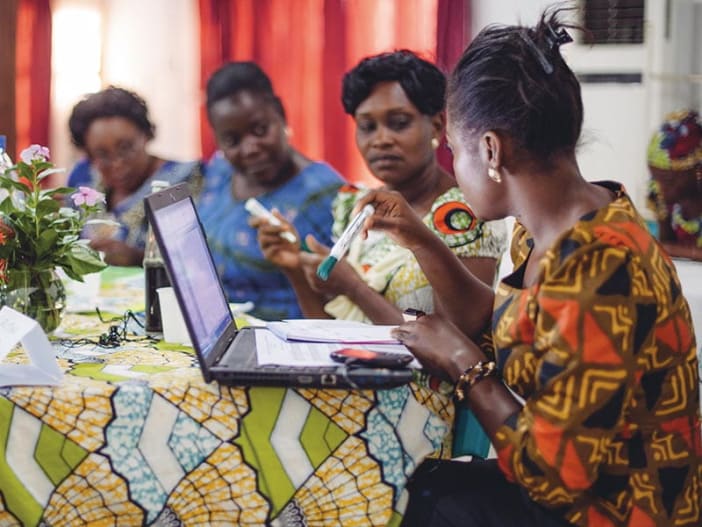When we start working on land rights, the first thing we learn is what a difficult and complex area it is. It soon becomes clear that land rights involve much more than finding technical solutions for dividing up the land. Working on land rights is about improving the rules and norms relating to who can access, use and control the land and its resources. It means working for and with women, men and communities who normally have little or no voice in these decisions.
Articles
Why are land rights important?
Securing and protecting vulnerable people’s land rights is essential for bringing about a fair and prosperous society
Written by Barbara Codispoti 2018 Available in English, French, Spanish and Portuguese
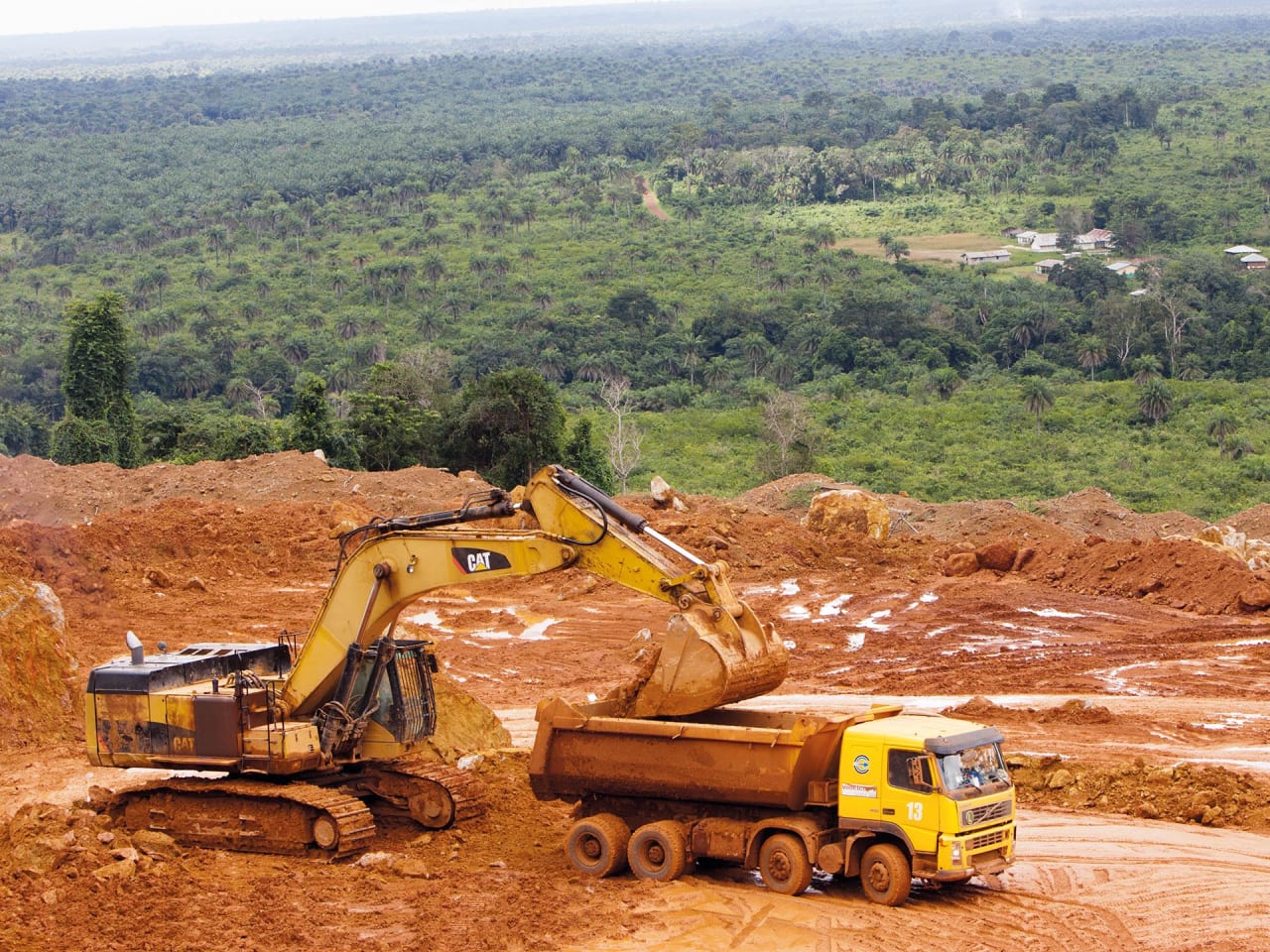
The land for this bauxite quarry in Sierra Leone belonged to the people of Mbonge village, but was sold to a mining company for a one-off payment. Photo: Jay Butcher/Tearfund
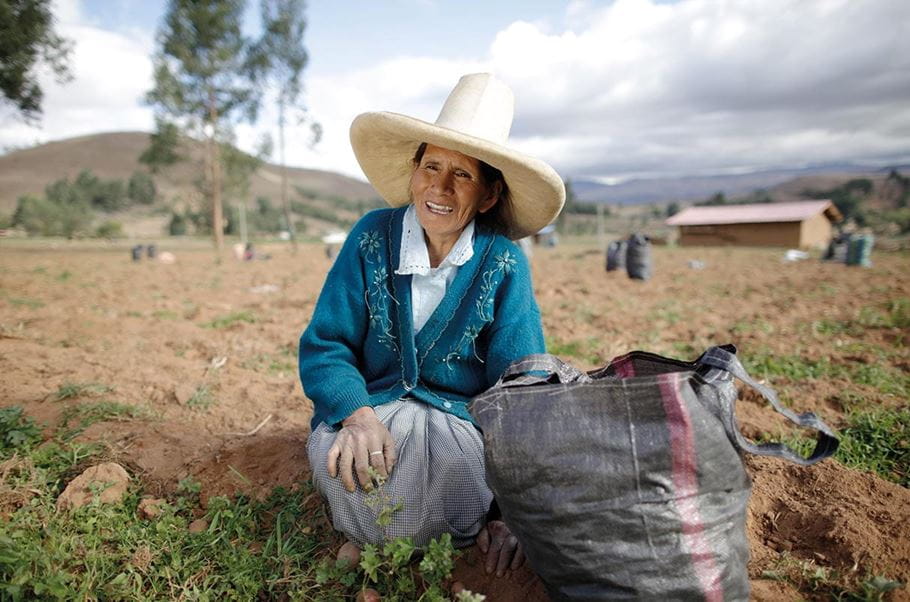
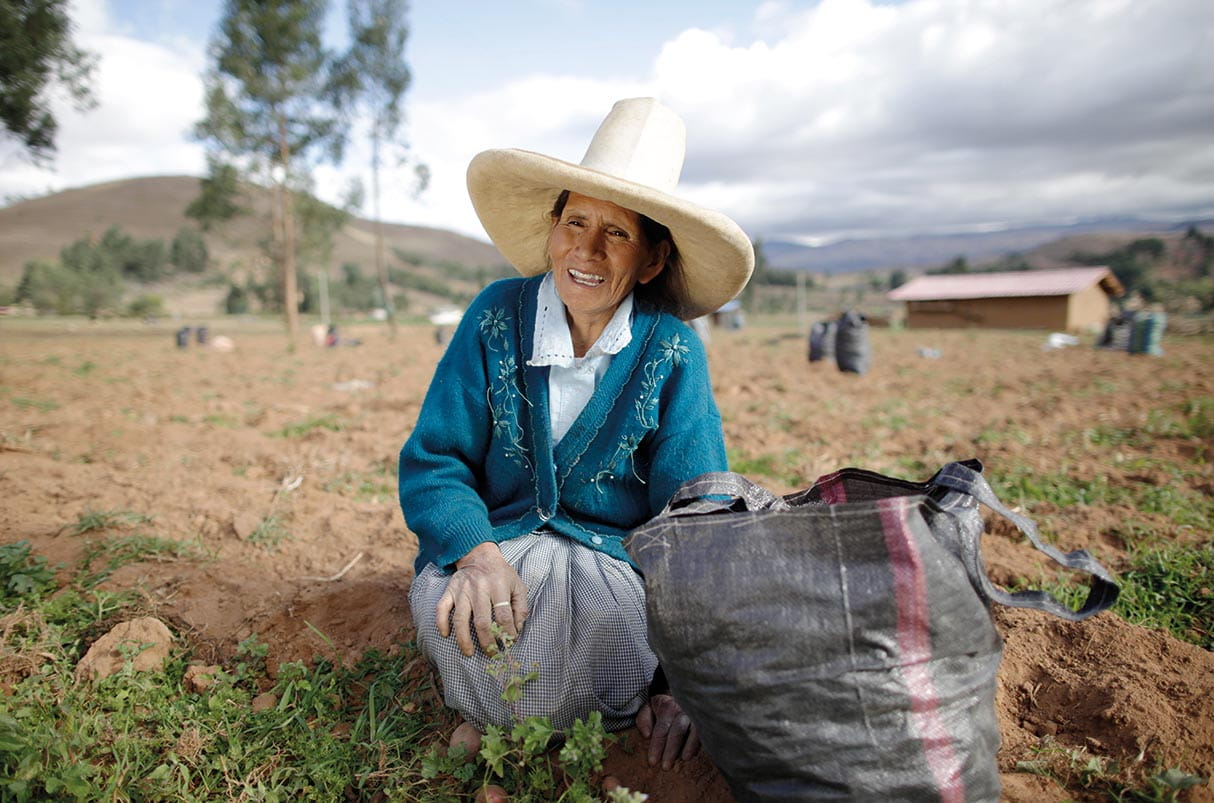
Access to the land and its resources is vital for people’s livelihoods. Photo: Layton Thompson/Tearfund
Securing and protecting vulnerable people’s land rights is essential for bringing about a fair and prosperous society. It is key for combating poverty and hunger in rural communities, which rely on the land for food. Land rights are central to addressing inequalities, protecting the environment and sustaining peace.
When women and men can prove that they have secure land rights, it makes it easier for them to access credit, loans and extension services, as well as schemes such as insurance or welfare plans. People with secure land tenure are better able to invest in their land and make improvements. In urban areas, land rights are often vital for access to public services such as water and sanitation.
Marginalised groups’ rights
Around the world, women own less land than men. The land they do have is of worse quality and comes with less legal certainty. Supporting women to get access to more land, and to gain recognised property rights, can bring transformative social change. When women own land, either individually or jointly with their husbands, they have a different position in their families and societies. Research has shown that women are more likely than men to spend income from land and other resources on their children’s food and education.
Working towards indigenous and community land rights is also vital. Large amounts of forests and pastures are held and managed communally by indigenous peoples and local communities. These groups have valuable skills and knowledge for preserving and caring for their lands and natural resources. Protecting their rights is not only important for safeguarding their livelihoods and cultural identities – it also helps to conserve the environment and combat the effects of climate change.
Competition, conflict and corruption
The world is experiencing a land tenure crisis. This is because there is increasing competition for land and natural resources. Competition happens at all levels: within families, within the same community, among communities, and between communities and the government or private investors. In the last decade we have witnessed the growth of ‘land grabbing’. This is when powerful elites or investors obtain land, often at low cost and without proper consultation or consent.People who have no means to protect and claim their land rights are evicted and displaced on a daily basis for the benefit of the few. This is worsened by the high level of corruption in many governments. Corruption can also be found within communities, where traditional leaders might act selfishly for personal gain.
The broken relationships between people because of land issues easily turn into conflicts. Good, just systems that govern land and its resources are vital to prevent this competition ripping our societies apart.
Working together for change
Encouragingly, in the last decade international commitments have been made to regulate the governance of land and natural resources. Protecting the land rights of small farmers, vulnerable communities and particularly women is explicitly mentioned in the Sustainable Development Goals. International, national and local civil society organisations are speaking out loudly, building solidarity and mobilising communities. They aim to hold governments and private actors accountable to what they promised on paper. Many are taking action, but more remains to be done.
What can individuals do?
Land is an issue that involves relationships between people and within society. The actions of individuals can have a positive impact in the long term only if they are part of larger joint efforts. In their own capacity, individuals can:
- request information about their land and resource rights according to the law, and research ways of resolving disputes
- seek support to find the best and most cost-effective way to document and protect their individual and/or community rights. This could involve reaching out to organisations working in this area.
- once they have gained this knowledge, educate and mobilise other family and community members about the need to protect land rights
- stress the importance of including all members of the community in decisions.
What can grassroots organisations do?
Grassroots organisations have a key role to play in helping communities and specific groups (eg women) to come together and work on land-related problems. Grassroots organisations can:
- help communities to educate, mobilise and organise themselves to take action on land rights
- collect information about the land tenure situation and existing disputes in their local communities. Organisations need well documented evidence to do successful work on land rights.
- equip themselves with the right tools and skills to collect land data (eg participatory mapping techniques)
- reach out to other organisations and/or government bodies to get the legal and technical support they need
- represent communities’ interests in discussions with potential investors
- build alliances with other organisations to advocate with regional and national governments.
What can we ask our governments to do?
Governments have a duty to protect their citizens’ rights. We can ask the government to:
- develop and enforce land policies and laws that will benefit poor people. These may include policies for redistributing land, as well as for recognising and formalising customary and collective rights.
- develop policies and laws that benefit women in terms of land. These regulations should be included in land law, but also in other frameworks such as family and inheritance law. Promote and enforce programmes such as joint land titling for husbands and wives, and provide incentives for this. Make sure that women are included in land decision-making bodies at all levels.
- ensure there is an open and affordable process for documenting and registering land rights and for resolving disputes
- combat corruption around land issues.
Knotty problem
Question: I know that advocating about land rights can be dangerous. How can my community keep safe while trying to protect our rights?
Answer: When an organisation speaks out in a difficult environment or on controversial issues, it can be risky for the people involved. Violence, threats of violence, imprisonment and even death threats may be made against those doing the advocacy, their friends and family, and people in the communities involved.
Below are some examples of ways of reducing risks associated with doing advocacy.
- Work with organisations outside the country or context who are not under the same threat.
- Undertake advocacy with others, as part of a network or alliance, to keep a low profile and give strength in numbers.
- Build strong relationships with those in power who could help you in difficult situations.
- Show respect to decision-makers and give them clear explanations if they ask for them.
It is a good idea to do an advocacy risk analysis to identify and manage risks. Tearfund’s Advocacy toolkit can help with this. If any risk is too high, it is wise to consider alternative options for advocacy, such as asking an external spokesperson or overseas organisation to advocate on your behalf.
It is good practice to ensure that everyone involved is aware of the risk, is still happy to proceed and is aware of what to do to minimise the risk. This will probably involve ensuring that they know who to go to for help. There may be some situations where the risk is so high that we cannot do any advocacy at all. However, it is worth remembering that, sometimes, there may be a bigger risk in not doing advocacy than in going ahead with it.
Answer adapted from Tearfund’s Advocacy toolkit by Joanna Watson. Visit www.tearfund.org/advocacytoolkit to download a free copy, or contact us to order a printed copy for £12.
Glossary
Land tenure means the right to hold, use, manage and transfer a piece of land.
Customary means according to the customs or usual practices in a particular setting.
Statutory means according to the law.
Gender justice means valuing women and men equally and ensuring they have a fair share of power, knowledge and resources.*
*This is a simplified definition for the purposes of this edition. For a fuller definition of gender justice, see Tearfund’s Transforming Masculinities, available at www.tearfund.org/transformingmasculinities
View or download this resource
Get this resource
Get this resource
Written by
Written by Barbara Codispoti
Barbara Codispoti is the Global Land Programme Lead at Oxfam. Web: www.oxfamnovib.nl/donors-partners Email: [email protected]
Similarly Tagged Content
Share this resource
If you found this resource useful, please share it with others so they can benefit too.

Subscribe to Footsteps magazine
A free digital and print magazine for community development workers. Covering a diverse range of topics, it is published three times a year.
Sign up now - Subscribe to Footsteps magazine





